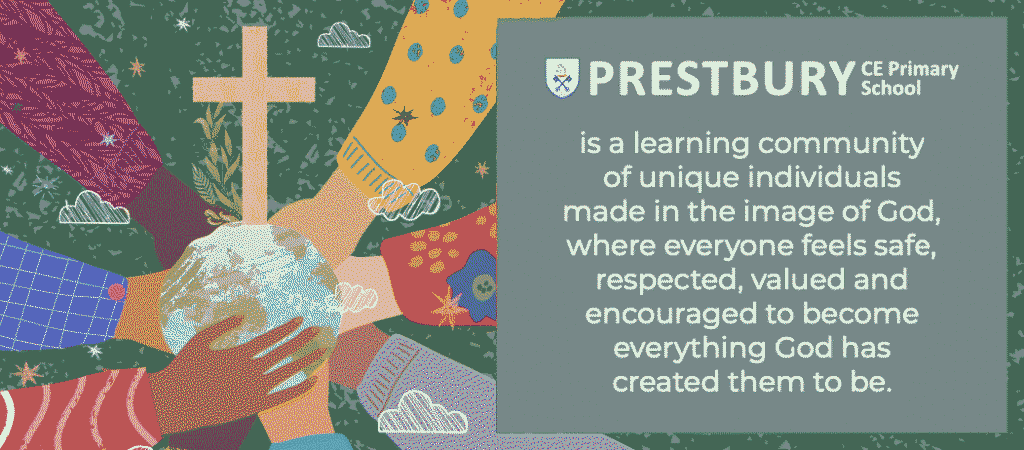
The school vision seeks to focus on developing the spiritual life of all in our community, encouraging all in valuing others, and making a positive difference to others. We believe God has good works set aside for each one of us and we want to encourage the focus on doing good deeds and by doing so letting our light shine that others may praise God. We recognise all in our community are able to shine by doing good, that we encourage one another in completing good deeds and in doing so become everything that God has created us to be. As a learning community, we will also become everything God has created us to be by doing our best in all that takes place in school, appreciating that as unique individuals we will ‘shine’ in different areas of the curriculum and in the life of our school community.
Our school verse supports us to live out our vision with all encouraged to do good deeds; valuing and giving thanks for the good deeds of all in our community. We are about doing good and encouraging others to do good, and in doing so all are encouraged to become everything that God has created them to be.

Our school values support the focus on everyone being unique, the focus on others and in becoming everything God has created us to be.
Courage
Kindness
Wonder
Prestbury Church of England Primary School is a place where the Christian message is both celebrated and lived out in our day-to-day interactions with one another. As a Church of England school, we aim to provide an outstanding education for all of the children in our care, within a strong Christian framework
At the core of our curriculum is the development of the key skills required to lead a successful life. These skills are developed in a context where the children encounter a wide range of experiences and their eyes are opened to the awe, wonder and amazement of God’s creation.

In June 2014, David Cameron emphasised the important role that British values can play in education and since September 2014 they have formed part of the Ofsted framework.
Our Vision, with a strong foundation of Christian values, supports the emphasis on British values and the areas covered by this term – and beyond – and would be something that we see as important whether it was an area of focus in education or not. Indeed, we believe that with our consistent and longstanding tradition of focussing on Christian values, we have addressed and will continue to address British values. At our most recent Ofsted, in February 2020, the school was graded as OUTSTANDING in the area of Personal Development, part of which incorporates British values.
Our school verse and Vision are focussed on each member of our school community doing good, making a positive contribution and letting their light shine. It incorporates a celebration of difference, in the uniqueness of each individual as created by God, and alongside this our togetherness in the focus on making a positive contribution both locally and globally.
Such an approach means that in implementing and following the recent focus on British values, the school has positive, high expectations of all members of our school community in how we interact with all people. There can be no higher encouragement – or challenge – than that in our interactions with all people we show Jesus’ love. Jesus’ love knew no bounds and He reached out to all people, all groups and in particular those who were considered ‘outcasts’ of the day.
British values are promoted in so much of what we do, not least during our daily acts of Collective Worship and in our RE lessons, and even though areas covered by British values will at times be taught discretely through our Christian ethos and values, they are woven through all that we do and as such are something we seek to live out in our day-to-day interactions.
As well as actively promoting British values as part of our Christian ethos, the opposite also applies: we would actively challenge children, staff or parents expressing opinions contrary to fundamental Christian and therefore British values, including ‘extremist’ views.
Below are just a few examples of how we promote British values. The first section is a general overview; the others are specific expectations set out by Ofsted.
Being part of Britain
As a school, we value and celebrate the heritages of everybody at our school. Alongside this, we value and celebrate being part of Britain. In general terms, this means that we celebrate traditions, such as customs in the course of the year; for example, Harvest festival during the Autumn term. We also value and celebrate national events, such as World Book Day, Comic Relief, Children in Need, Jubilee celebrations, the Olympics and so on.
Further, children learn about being part of Britain from different specific perspectives. Two specific examples of when we teach about being part of Britain are:
Geographically: Our Geography units ensure that children have a better understanding of what Britain is, learning more about:
Historically: Through our History based units, which include British history. During the topics, children learn about different aspects of life and how these have developed and changed over time; the topic might include inventions and discoveries, or houses, or medicine.
Democracy
Children, parents and staff have many opportunities for their voices to be heard at Prestbury CE Primary. Democracy is central to how we operate.
An obvious example is our School Council / House Captains / Head Boy and Head Girl elections. The elections reflect our British electoral system and demonstrate democracy in action: candidates make speeches, pupils consider characteristics important for an elected representative, children vote in secret. Made up of two representatives from each class, the School Council meets regularly to discuss issues raised by the different classes. The council is able to genuinely effect change within the school; in the past, the School Council has planned the playground area and led whole school initiatives on Anti-Bullying and Online Safety. The Council are actively involved in providing feedback.
Other examples of ‘pupil voice’ are:
Children are always listened to by adults and are taught to listen carefully and with concern to each other, respecting the right of every individual to have their opinions and voices heard. We encourage pupils to take ownership of not only their school but also of their own learning and progress. This encourages a heightened sense of both personal and social responsibility and is demonstrated on a daily basis by our pupils.
Rules and laws
The importance of rules and laws, whether they be those that govern our school or our country, are referred to and reinforced often, such as in assemblies and when reflecting on behaviour choices. At the start of the school year, each class discusses the High 5 rules, a set of principles that are clearly understood by all and seen to be necessary to ensure that every school member is able to learn in a safe and ordered environment.
Children are taught the value and reasons behind laws, that they govern and protect us, the responsibilities that this involves, and the consequences when laws are broken. These values are reinforced in different ways:
Individual liberty
Alongside rules and laws, we promote freedom of choice and the right to respectfully express views and beliefs. Through the provision of a safe, supportive environment and empowering education, we provide boundaries for our children to make choices safely. For example:
Our pupils are encouraged to know, understand and exercise their rights and personal freedoms and are taught how to exercise these safely.
Mutual respect and tolerance of those with different faiths and beliefs
At Prestbury CE Primary we are proud to promote and celebrate different backgrounds and beliefs. Mutual respect is at the heart of our Vision Statement.
Our pupils know and understand that it is expected and imperative that respect is shown to everyone, whatever differences we may have, and to everything, whether it is a school resource or a religious belief. Children learn that their behaviour choices have an effect on their own rights and those of others. All members of the school community should treat each other with respect.
Specific examples of how we at Prestbury CE Primary enhance pupils’ understanding and respect for different faiths and beliefs are:
Sadly, no school can guarantee that there will never be instances which are contrary to this value. At Prestbury CE Primary, such instances are extremely rare. They are treated seriously, in line with our Behaviour and Anti-Bullying policies.
For those who would like to read about the reasoning behind the focus by the Government/Ofsted on British values, please see the link below:
http://www.gov.uk/government/news/guidance-on-promoting-british-values-in-schools-published
We can provide paper copies of any information free of charge upon request.

Prestbury CE Primary School
© 2025 All Rights Reserved